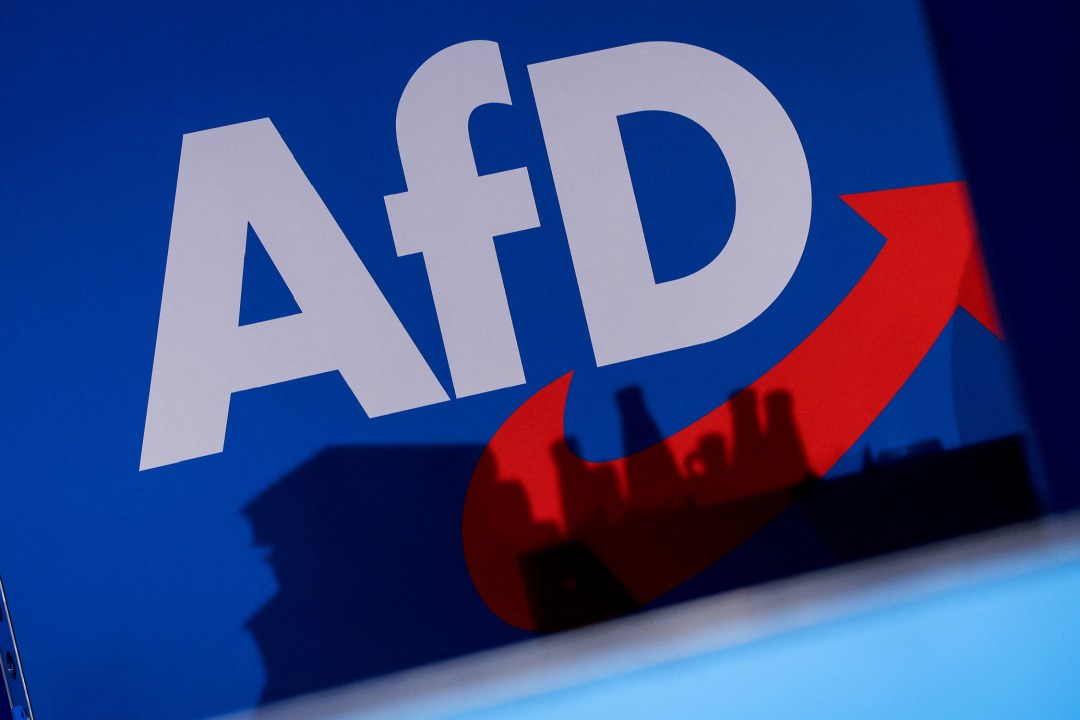(personal underlines)
Why I’m voting for the AfD

On 23 February, I will vote for the Alternative for Deutschland (AfD) party in the German general election. As someone with an immigrant parent, a postgraduate degree, and who works in the liberal world of film and TV, this is the last thing I’m supposed to admit to in public.
My fellow Germans might understand my not wanting to vote for the Social Democratic party (SPD), the left-wingers who lead our deeply unpopular coalition government. But as an ‘educated’ millennial, surely I ought to vote Green? After all, our shamelessly non-neutral public broadcasters ARD and ZDF acclaim them the ‘party of youth’.
Or perhaps, as someone who usually thinks of themselves as a conservative, I should vote for the Christian Democratic Union, the bland centre-right party which is predicted to gain the most votes in the election? The hard truth, though, is that Germany is no longer the safe, prosperous country I remember from my childhood, and it is these ‘normal’ parties who are to blame.
Many of Germany’s problems started when Angela Merkel, the former CDU chancellor, decided in 2015 to open the borders to anyone who claimed to be a Syrian refugee. Millions came, with a compliant media claiming they would be the doctors and engineers of the future who would pay for our pensions. Nearly a decade on, many of those who arrived still don’t have jobs, can’t speak German and rely on benefits. There has been a significant rise in terror attacks and an increase in violent crime linked directly to some of these immigrants.
Now nearly half of all welfare recipients are foreigners. More than €132 billion in welfare has been paid to them since 2010, with costs tripling between 2010 and 2023. By contrast, it is estimated that the sum needed to upgrade schools, roads and our increasingly unreliable public transport system comes to €165 billion. Merkel’s generosity came at the direct expense of German citizens.
The situation has been made worse by the economic vandalism of the SPD and Greens, who shut down our nuclear power plants on ideological grounds and pushed our car industry into the dead end of electric vehicles. As a result, combined with the effects of the war in Ukraine, we have been blessed with soaring energy prices, a higher cost of living and a huge expansion in the numbers of people employed in our notoriously ponderous civil service. Unsurprisingly, every week brings news of more layoffs and bankruptcies.
Everyone is feeling the pinch. Friends complain that they’ve had to move back in with their parents because of rising rents. Others tell me they have stopped buying meat in their weekly shop because of the cost. Many of the people I know bemoan the fact that, despite the expensive health insurance we pay for, there is no longer a hospital with facilities for children nearby. For the first time in our lives, we sense the likelihood that we will not enjoy the kind of lifestyle that our parents have been blessed with.
It’s hardly a surprise that the AfD is second in the polls, but what is particularly striking is the number of young voters shifting away from the Greens. In a recent internal school election in Thuringia, nearly half the students voted for the AfD, citing crime, immigration and a lack of jobs. In state elections in Thuringia, Saxony and Brandenburg, the AfD have dominated the youth vote. In Brandenburg, they came first with every age group until it came to the over-sixties. They have been the only party consistently to oppose mass immigration and Germany’s absurdly lax criminal laws. The latter have led to cases such as the one last year when a gang rapist was given a suspended sentence because he was under 20, while a woman who insulted him in a text message was sent to jail for the weekend.
Despite the AfD’s growing popularity, the other parties continue to operate the Brandmauer or ‘firewall’, in which they refuse to cooperate with them at all. This is a policy which doesn’t apply to parties like Die Linke, the direct descendent of the Communist party, which instituted the Stasi to rule East Germany. This blinkered approach makes a mockery of democracy and is harming our political system, as the AfD becomes too big to exclude, with parliamentary rules being rewritten on the fly to keep them out.
The establishment parties argue that the AfD is extremist, but the problem is that many of those issuing the accusations are less than impartial. Stephan Kramer, who runs the Thuringian Office for the Protection of the Constitution, which declared the AfD ‘extremist’, was once an electoral candidate for the SPD. The widely reported claims by the website Correctiv that AfD members were involved in a secret conference in Potsdam to discuss deporting German nationals of foreign origin turned out to be false.
I don’t agree with everything the AfD says or does. Prominent figures such as Björn Höcke argue against the free market and capitalism, in favour of measures which would worsen our economic problems. But it was the other parties who led us into this mess and, without the pressure of the AfD, they would happily continue to do so. Even if the CDU now says that Germany may leave the ECHR and deport criminals who repeatedly offend, such promises are worth little because Germany’s electoral system would mean they had to form a coalition with the SPD or Greens, who would push them left when the majority in the country want a right-wing government.
The AfD is therefore the only choice for those who want to cut taxes, end mass immigration, restore our nuclear power, tackle the welfare state and prune over-regulation. That’s why I join Elon Musk in saying that only the AfD can save Germany.
Sem comentários:
Enviar um comentário